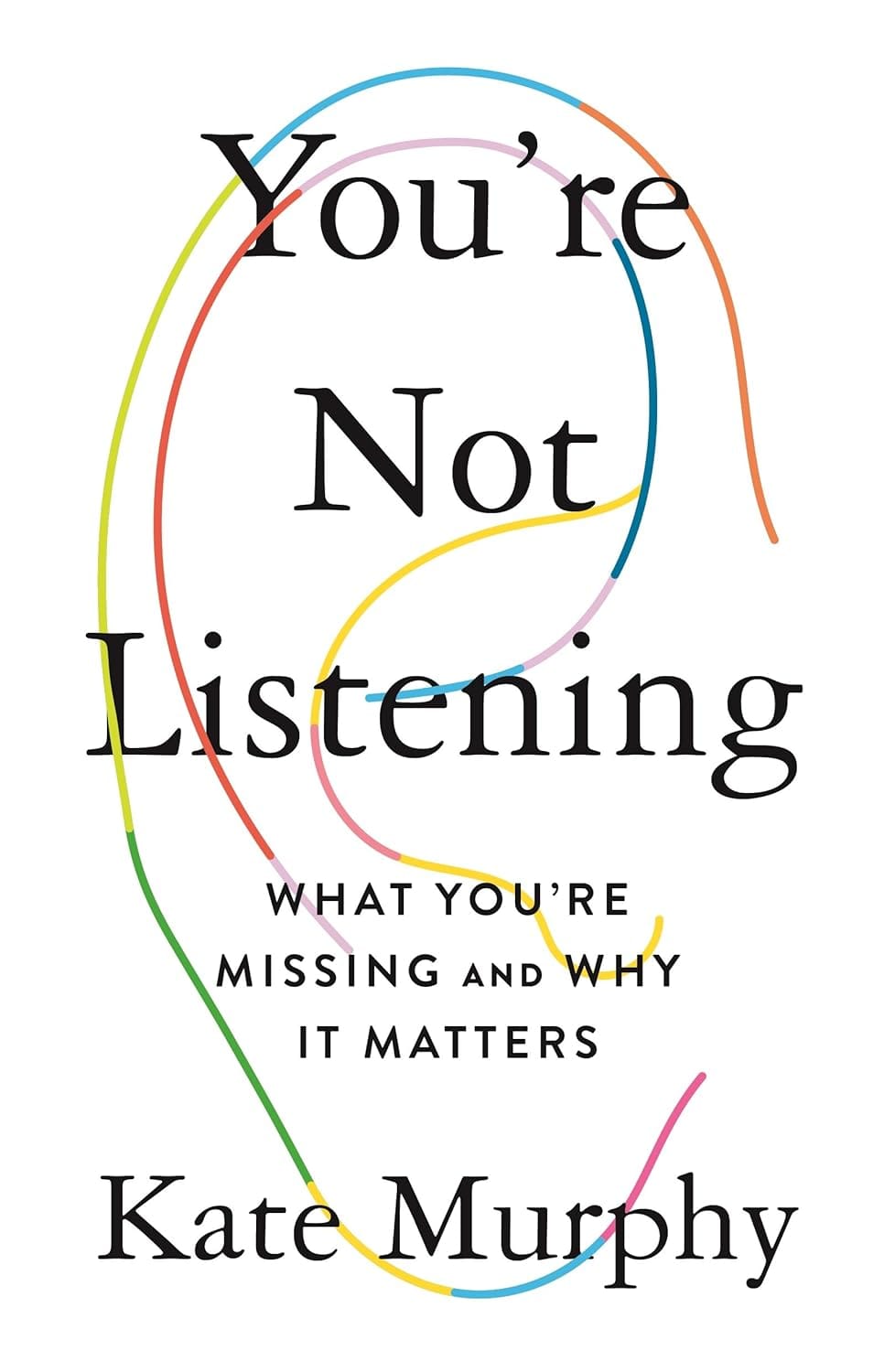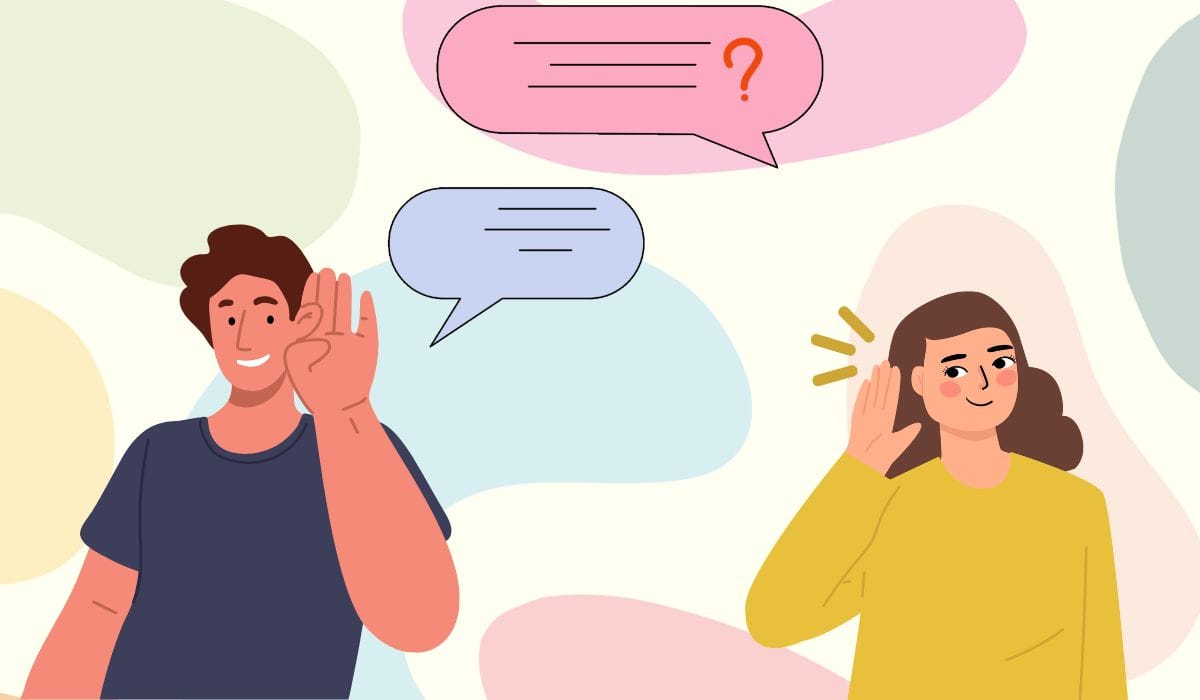Author Kate Murphy on How to Really Listen and Give Each Other More Grace This Time of Year (and Beyond)
Often, it's the seemingly most straightforward things we take for granted and even fail at. Enter: listening. This crucial act of connection and communication takes effort, skill, and energy to do well. As journalist Kate Murphy tells The Sunday Paper, "Listening is a skill, and like any skill, it deteriorates if you don't do it often enough."
Murphy would know. She spent two years researching listening for her book, You're Not Listening: What You're Missing and Why It Matters, and found some ironic and enlightening facts about how we are (and are not) tuning into each other and the collateral damage it's having on our relationships. The upside is she also unlocked tangible ways to better our listening game—even when we're steeped in divisive, stressful times as we are now—which she shares with us here.
A CONVERSATION WITH KATE MURPHY
In the introduction to your book, you write, "As a culture, we seem to be losing our listening mojo." What concerns you most about how we are or are not listening to one another?
My biggest concern is there is so much stacked against our listening these days. The most obvious obstacle is our phones. Not only do they keep us from giving others our full attention, research shows the mere presence of a phone on the table makes people less inclined to say anything meaningful or interesting. It's this weird loop of our phones making us have boring, soul-less conversations, which only makes us more likely to look down at our phones. But it's not just technology that's getting in our way. As I cover in my book, myriad cultural, psychological, political, and even architectural factors prevent us from listening. Think: too loud restaurants and noisy open office designs. It all adds up to a massive degradation of listening ability.
We're all steeped in intense times, from our ongoing political divides to the current holiday season. Amidst all this, how have you been seeing people take for granted listening? And how does this limit connection?
Neuroscientists have found that stress and anxiety are like earplugs. So, the holidays are always frantic and fraught with expectations, and this can make people not the best listeners.
There's also something called the "closeness communication bias" which comes into play with those we hold most dear. While you might think you would listen the most to those you love the most, in fact, the opposite is true. As wonderful as intimacy and familiarity are, they make us complacent, leading us to overestimate our ability to read those closest to us. We develop this mindset of I know what you're going to say and stop listening or even inquiring. The problem is no one is the same today as they were yesterday. We are all constantly evolving by virtue of our experiences, and if you stop being curious and truly listening to the people you love, you will lose touch with who they are. This can strain and even end relationships. Have you ever learned something surprising or new about someone close to you when the two of you were talking to someone else? You might have even said, "I didn't know that!" The other person was likely listening in a way and asking questions in a way that you previously hadn't.
Considering holiday get-togethers and social gatherings any time of year, what should we remember to keep our listening skills strong?
When you walk into a party and look around at everyone there, remember that everybody— and I mean everybody—is interesting if you ask the right questions. Everybody has a fascinating backstory that they are aching to tell you if you are curious, kind, and open enough to hear it. This is not to say you'll end up liking or agreeing with everyone you encounter, but you will at least better understand who they are and why they are the way they are. And understanding is how we grow and develop as individuals and as a society.
It's also important to note that you cannot be a good conversationalist if you are not a good listener. In order to be clear, convincing, compelling, engaging, or even remotely entertaining, you have first to know your audience. Not everybody has the same interests, sensibilities, or level of understanding, and not trying to discern and respect those differences is the surest way to bore or aggravate people or otherwise make them shut down. Only by listening first can you craft a message, make a point, or tell a story that really resonates.
What is one piece of advice to help us lean in, listen, and engage with one another?
There are so many surprisingly simple and effective ways to become a better listener. If I had to offer one takeaway tip, it would be that at the end of every conversation, you should be able to answer two questions:
- One: What did I learn about this person?
- And two: How did this person feel about what we were talking about?
If you can easily and accurately answer those two questions at the end of every conversation, you're well on your way to being a better listener. If you can't, it might be time to up your listening game.

Kate Murphy is a Houston, Texas-based journalist and author who has written for the New York Times, The Wall Street Journal, The Economist, and more, exploring an extraordinary range of topics. She's the author of You're Not Listening: What You're Missing and Why It Matters. Learn more at journalistkatemurphy.com.
Further reading on listening and strengthening relationships:
• How We Talk to Each Other Needs a Tune-up
Please note that we may receive affiliate commissions from the sales of linked products.



